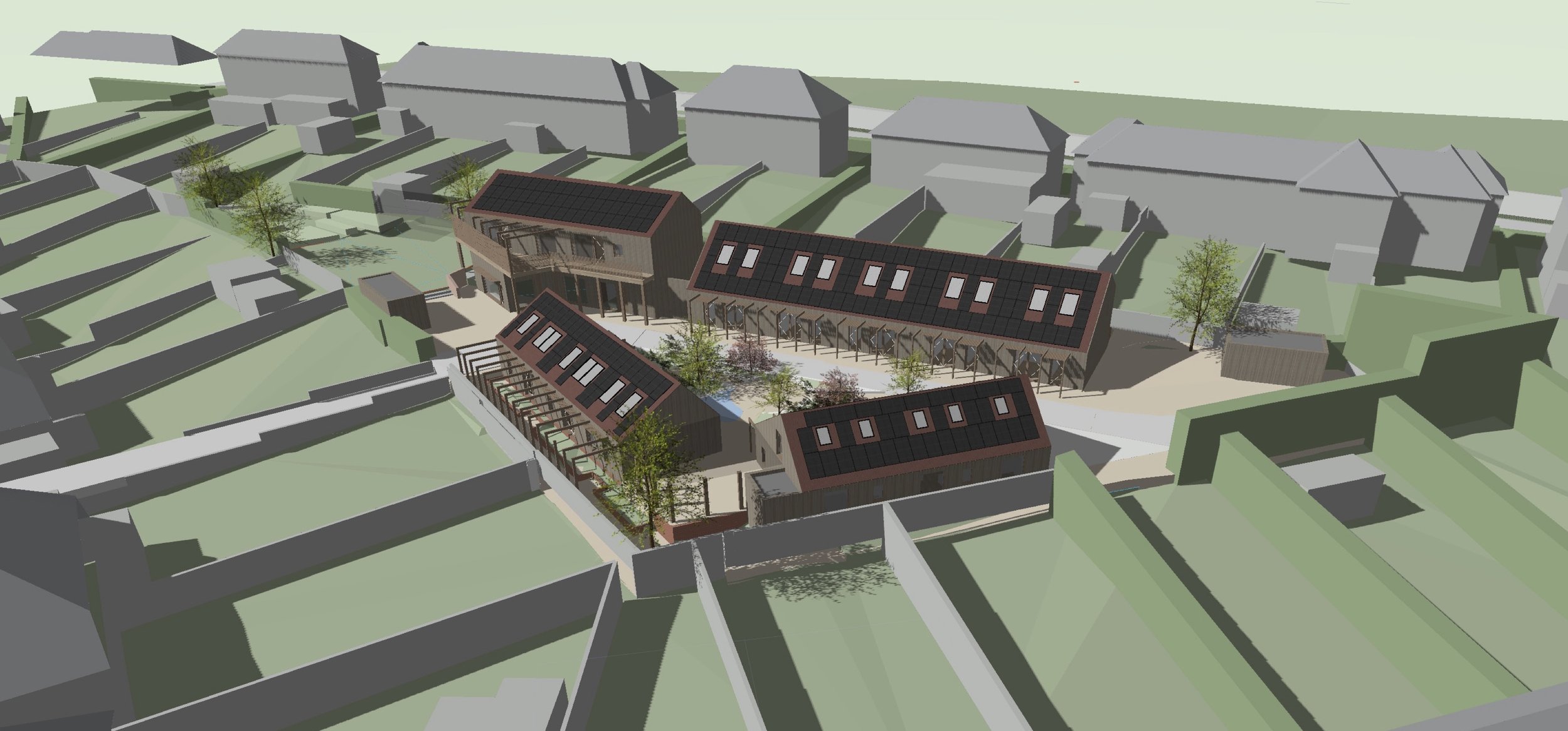debunking Misconceptions About Co-Housing!
by David Caldwell
Co-housing is gaining popularity as more people seek alternatives to expensive rents or privately owned houses. However, despite its growing appeal, several misconceptions persist about what co-housing really entails. Let’s clear up some of these myths and shed light on the true nature of co-housing!
“Co-Housing Means No Privacy.”
One of the most common misconceptions is that co-housing sacrifices personal privacy. While co-housing emphasises community and shared spaces, it doesn’t mean giving up your personal space. In fact, co-housing communities are designed to balance private and communal living. Each household has its own fully equipped, self-contained home, where residents can retreat and enjoy privacy whenever they wish. Shared spaces, such as kitchens, gardens, or living rooms, are available for communal activities, but participation is voluntary.
We have been working with members of Tiny House Community Bristol and their consultant team to develop an innovative, exciting, and regenerative cohousing project for them. The development is on land that has been offered by Bristol City Council through their land disposal policy. Even though the houses are tiny, they are still fully equipped, self-contained homes!
“Co-Housing Is Just Another Name for a Commune.”
Co-housing is often confused with communes, but they are fundamentally different. In a commune, residents might share income, assets, and often live according to a collective ideology. Co-housing, on the other hand, is about living in a community where resources like gardens or laundry facilities are shared, but households maintain their financial independence. Co-housing is a practical living arrangement, it doesn’t have to be an ideological one.
“It’s Only for the Young and Idealistic.”
Another misconception is that co-housing is only for young people with idealistic views. In reality, co-housing attracts a diverse range of people across all age groups and backgrounds. Families with children, retirees, single professionals, and young couples all find value in the community-oriented lifestyle co-housing offers. This diversity often strengthens the community, providing a richer social environment and support system.
Bridport Cohousing inhabitants vary widely in age and background. View the whole project here.
“You Have to Be an Extrovert to Enjoy Co-Housing.”
There’s a misconception that co-housing is only suited for extroverts who thrive on constant social interaction. In reality, co-housing communities are designed to accommodate a range of social preferences. While there are plenty of opportunities to engage with neighbours, there is no pressure to participate in every community activity. You can still enjoy the benefits of co-housing while having ample space and time for solitude.
Final Thoughts
Co-housing is a flexible and inclusive way of living that offers many benefits without imposing rigid demands on residents. It’s about finding a balance between privacy and community, independence and collaboration, and different groups navigate these in different ways. By debunking these common misconceptions, we can see that co-housing is a viable and rewarding option for people from all walks of life!


